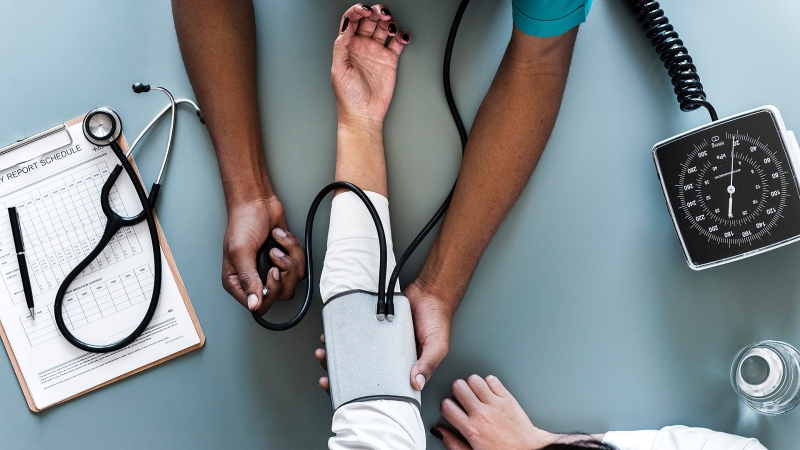Impotence, also known as Erectile Dysfunction (ED), is a common health issue affecting a significant number of men worldwide. Recent studies have discovered an undeniable connection between high blood pressure (hypertension) and impotence in men. This article aims to shed light on this correlation and discuss various treatments available for combating impotence.
1. Unveiling the Connection between Hypertension and Impotence:
Hypertension can damage the walls of your veins and arteries, causing them to harden and constrict. This impedes the smooth circulation of blood, and when insufficient blood reaches the penis, it can lead to impotence.
The Role of Healthy Blood Vessels in Erection: Blood vessels play a vital role in achieving a healthy erection. During sexual arousal, the brain sends signals to the penile blood vessels to relax and expand, allowing more blood to flow through them. However, in a hypertensive individual, these vessels are already narrowed down, causing an underwhelming erection or even complete impotence.
2. Addressing Impotence: Medications and their Mechanisms:
A plethora of pharmaceutical options are available to combat impotence. These medications primarily belong to a class of drugs called PDE5 inhibitors. PDE5 Inhibitors: The Pillars of Impotence Treatment PDE5 inhibitors, including Viagra, Levitra, Staxyn, and Cialis, are often the first line of treatment recommended by healthcare professionals. These drugs work by inhibiting an enzyme called PDE5, which breaks down a substance known as cyclic guanosine monophosphate (cGMP). By inhibiting PDE5, these drugs help to enhance the effect of nitric oxide, a chemical that relaxes muscles and blood vessels in the penis, facilitating an erection.
- Generic Viagra: Introduced in the late 1990s, Viagra was the first PDE5 inhibitor on the market. It takes about 15 to 30 minutes to show its effects and lasts for approximately two to three hours.
- Generic Levitra: Levitra is known for its longer duration of action, lasting up to five hours. It should be taken 30 to 60 minutes prior to sexual activity.
- Generic Cialis: Cialis is renowned for its long-lasting effects, which can persist for up to 36 hours. This drug requires about an hour to take effect.
- Staxyn: Staxyn is a newer PDE5 inhibitor that dissolves in the mouth without the need for water. It contains the same active ingredient as Levitra, Vardenafil, and should be taken about an hour before sexual activity.
However, it’s essential to consult a healthcare provider before starting any medication, as all these drugs come with potential side effects and contraindications. For instance, men who take nitrate drugs or have experienced a heart attack should avoid these medications.
3. Natural Remedies: Herbs and Supplements:
While modern medicine offers effective solutions to combat impotence, some individuals prefer natural remedies like herbs and dietary supplements. However, the efficacy of these remedies is not as well-documented as pharmaceutical options.
Commonly Used Herbs and Supplements – Some popular herbs and supplements believed to alleviate impotence include:
- L-arginine
- Horny goat weed
- Damiana
- Muira puama
- Pycnogenol
Nonetheless, it’s crucial to consult a healthcare provider before trying out any of these natural remedies to avoid potential risks and adverse reactions.
4. Alternatives to Pills: Injections, Pumps, and Surgical Options
In some cases, oral medications fail to deliver the desired results. For such individuals, there are other treatment options available, including injections, vacuum pumps, and surgical procedures.
Injections: Injectable drugs such as Alprostadil can be directly administered into the penis to facilitate an erection. Alprostadil is also available in a pellet form, which can be inserted into the penile opening with an applicator.
Vacuum Pumps: A vacuum pump is a non-invasive device consisting of a clear plastic tube, a pump, and an elastic band. The penis is inserted into the tube, and the pump is used to draw air out of the tube, creating a vacuum that causes blood to flow into the penis, leading to an erection. The elastic band can then be slid to the base of the penis to maintain the erection.
Surgical Procedures: For men who fail to respond to all other treatments, penile implant surgery can be an option. This involves implanting a device into the penis that can be manually controlled to achieve an erection.
5. Preparing for Surgery:
Before deciding to undergo surgery, a comprehensive medical evaluation is crucial. This typically includes discussions about your medical history, physical examination, and an assessment of potential postoperative risks and complications.
In conclusion, while there’s a clear link between high blood pressure and impotence in men, numerous treatment options are available today. It’s essential to consult a healthcare provider to understand the best course of action based on individual health conditions. Remember, addressing the root cause, which in this case is high blood pressure, is just as important as treating the symptom, which is impotence.


